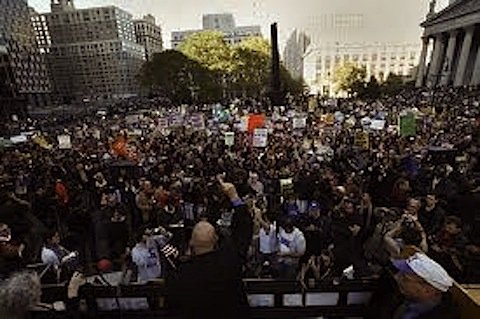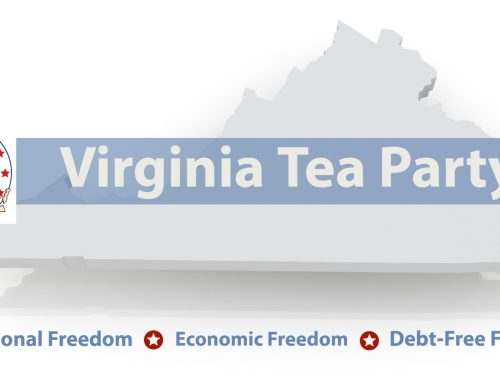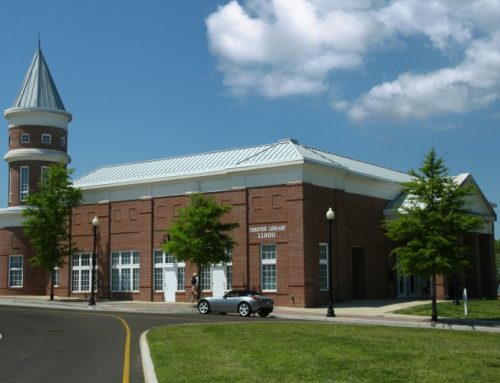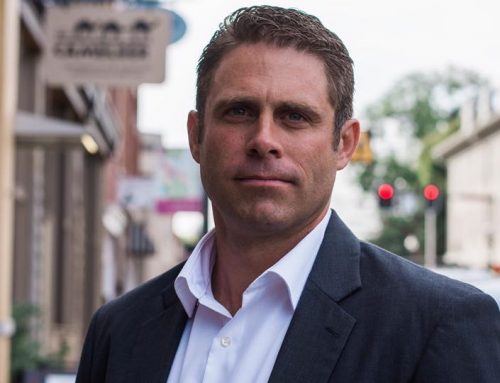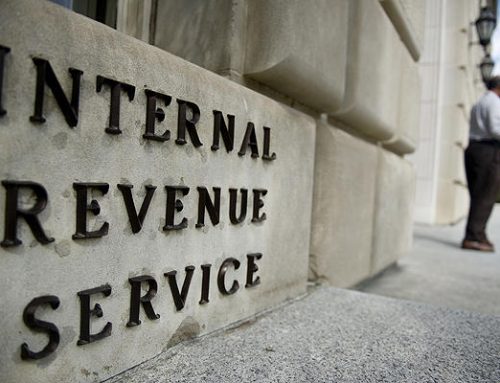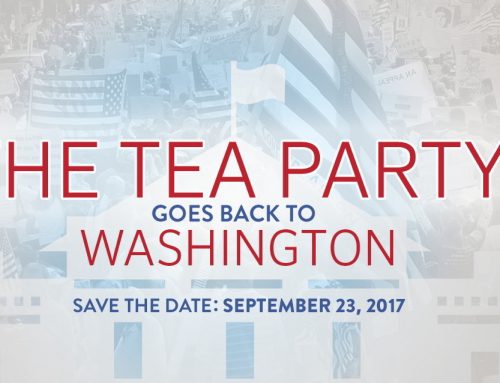Liberals like to say their Occupy Wall Street movement is just like the Tea Party.
They wish.
Peggy Noonan, a former speechwriter for President Reagan and now a columnist for the Wall Street Journal, addresses that claim in her Oct. 22 column (page A17, available only to WSJ subscribers):
It is not the tea party. The tea party was a middle-class uprising that was only too happy to funnel its energy into the democratic process. They took their central concerns—spending, taxes and regulation—and…entered politics and helped win elections….
Occupy Wall Street is completely different. They mean to gain power and sway by going outside the political system….
They are not funneling their energy into the democratic process because there is no market for what they are selling: Capitalism should be overturned, I am angry that my college loan bills are so big, the government is bad, and the answer is more government. You can’t win elections in America with that kind of message. So they will stay in the streets, where they can have an impact by stopping traffic, inconveniencing people going to and coming from work, and appearing to be an amorphous force that must be bowed to.
The difference between the occupiers and the tea party is the difference between acting out and taking part.
Where is Mr. Obama in all this? He has made sympathetic sounds about Occupy Wall Street, probably seeing it as ultimately part of his base….
A column by Doyle McManus in the liberal Los Angeles Times online headlined Obama’s embrace of the movement: “Obama in the Occupy Wall Street camp. With polls showing broad support for the movement, President Obama tries to turn the anger into an electoral advantage.”
A recent Forbes magazine online column by a Tea Partier argued that Occupy Wall Street is not at all like the Tea Party. Matt Kibbe, head of FreedomWorks and co-author of Give Us Liberty: A Tea Party Manifesto, said:
The ”Occupy Wall Street” movement desperately wants to be compared to the Tea Party, [sic] because such a comparison would give the fledgling, misguided movement unearned legitimacy. But there are three key characteristics that separate OWS from the Tea Party: First, the Occupy protesters pride themselves on provocative resistance to law enforcement and in some cases violence. Second, they disrespect public and private property. Third, and most important, the Occupy movement lacks a coherent guiding philosophy.”
He wrote that the Sept. 12, 2009 Tea Party demonstration in Washington was a perfect example of a Tea Party event as opposed to the Occupy Wall Street happening: no ”angry mob” mentality, no one arrested, no property damaged, no trash littering the demonstration site, and no arrests.
Tea Partiers, he said, get permits, cooperate with police, and respect the rule of law, and are responsible for meeting their own needs including food, water, shelter, medical care, and bathrooms, while the Occupy protestors use local businesses’ bathrooms “as their own personal washrooms.”
But, he said,
(T)he biggest difference between the Tea Party and Occupy Wall Street is that the Tea Party is bound by a common set of values based on freedom, responsibility and property rights….(The Tea Party is) united in a desire for less government, lower taxes and more freedom. Conversely, the Occupy Wall Street protesters are unified only by their hatred of the wealthy….Their attacks are disturbingly similar to those levied against the rich in Ayn Rand’s ”Atlas Shrugged,” [sic] where punishing the most productive members of society was more important than fixing the nation’s problems.
They say they oppose special favors to Wall Street but their so-called ”progressive” leaders who are waging the same kind of class warfare in Washington, starting with Barack Obama, are the enablers of bad actors on Wall Street. Big banks and investment firms were among Obama’s top donors in 2008….
Their answer is more government, but more government has been the problem all along….
The Washington Post on October 20 reported about Obama’s strong ties to Wall Street:
Obama has brought in more money from employees of banks, hedge funds and other financial service companies than all of the GOP candidates combined….The numbers show that Obama retains a persistent reservoir of support among Democratic financiers who have backed him since he was an underdog presidential candidate four years ago….
Obama’s ties to Wall Street donors could complicate Democratic plans to paint Republicans as puppets of the financial industry, particularly in light of the Occupy Wall Street protests….
Democratic pollster Doug Schoen conducted a survey, reported in the Wall Street Journal, of Occupy Wall Street protestors that painted a picture distinctly different from the Tea Party:
(They) are bound by a deep commitment to radical left-wing policies…. (T)he movement doesn’t represent unemployed America and is not ideologically diverse. Rather, it comprises an unrepresentative segment of the electorate that believes in radical redistribution of wealth, civil disobedience and, in some instances, violence. Half (52%) have participated in a political movement before, virtually all (98%) say they would support civil disobedience to achieve their goals, and nearly one-third (31%) would support violence to advance their agenda.
The vast majority of demonstrators are actually employed…. What binds a large majority of the protesters together…is… opposition to free-market capitalism and support for radical redistribution of wealth, intense regulation of the private sector, and protectionist policies…. Sixty-five percent say that government has a moral responsibility to guarantee all citizens access to affordable health care, a college education, and a secure retirement—no matter the cost.
In past election seasons, unruly liberal mobs have discomfited the electorate, thereby helping the conservative cause. Tea Partiers can’t be happy about the rise of unfocused mob anger throughout the country, but we can hope for an outcome that benefits the nation.

